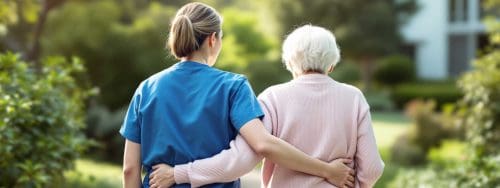Recognizing When Home May No Longer Be Safe
Understanding Activities for Daily Living (ADLs)

These challenges serve as key indicators of an individual’s ability to live safely and independently. Difficulty with ADLs does not reflect a lack of effort or will, but rather natural changes that can occur over time. Ignoring these signs can lead to increased stress, preventable injuries, and reduced quality of life. Addressing them proactively allows individuals and families to make thoughtful decisions before a crisis occurs. Senior Communities are designed to offer assistance while preserving independence, providing access to trained support, social connection, and purposeful routines. When daily needs are met consistently and safely, individuals are better positioned to maintain dignity, confidence, and a higher overall quality of life.
Health field professionals depend on identifying Activities of Daily Living (ADLs) or Instrumental Activities of Daily Living (IADL) with individuals. It is important for everyone to recognize and understand a basic listing of ADLs, as defined below:
- Bathing: The Elderly must be safe to bathe in showers or bathtubs. All body parts should be easy to reach, washed appropriately, and effortlessly dried with a towel
- Hygiene: Dental care, combing hair, using deodorant, and nail trimming need to be recognized and performed
- Toileting: Incontinency products should be worn when needed. Toilet positioning, wiping, and performing peri-care
- Eating: Cutlery needs to be comfortably held, and food needs to be easily cut. Difficulty swallowing might indicate a medical condition
- Dressing: Clothing should be worn correctly, laundered, and changed regularly
- Ambulation: One must be able to walk to the bathroom, answer doors, and transfer from bed or chairs with ease
All six ADLs are physical and essential to Quality of Life. The aging process may be associated with increased dependence on what is termed the Instrumental Activities of Daily Living (IADLs).
- Money: Balancing a checkbook, budgeting, and avoiding financial scams
- Household chores: Disposing of garbage, cleaning dishes, avoiding fall hazards, and laundering clothing
- Medications: Timely renewal of prescriptions, medications taken properly (with or without food, at correct times of day)
- Cooking: Reliance on proper nutrition instead of snacks and fast food. Cooking and storing food at proper temperatures
- Communication: Reaching out to others, either by technology or visiting, and engaging in social activities
- Transportation: Driving, using public transportation, and able to request a ride
- Shopping: List composition, knowing one store from another, and paying for purchases
If you or a loved one is having difficulty with an ADL (Activity of Daily Living) or IADL (Instrumental Activity of Daily Living), now is the ideal time to initiate a thoughtful conversation about Senior Communities and future care needs. Bridge to Better Living has the experience, compassion, and expertise to guide your family through every step of this important journey, helping you explore options that best fit your lifestyle, preferences, and budget. Our assistance is always provided at no cost to the client, ensuring peace of mind during what can often feel like an overwhelming process. Reach out to Bridge to Better Living today. We believe in Quality of Life… and most importantly, in YOU.


